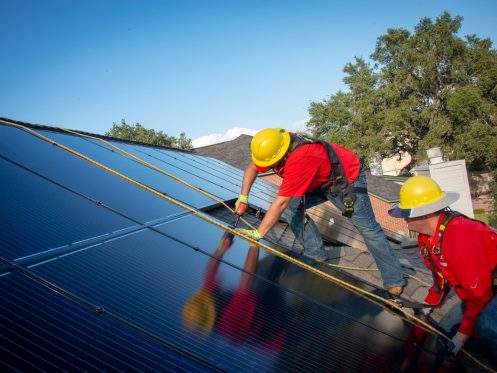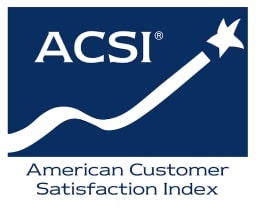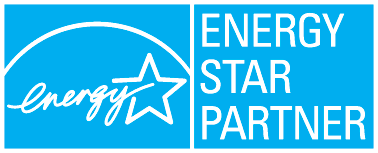When you think of solar panel and battery storage systems, you may also naturally think of summertime. This makes sense—solar energy comes from the sun; summertime includes longer days; therefore, investing in renewable solar energy should just wait until summer is closer. Right?
Actually, if you’re thinking about installing a solar panel system at your home, this is a great time of year to do it! We asked GVEC Customer Energy Solutions Sales Manager Chad Guthrie about this, so we could share his expert insight with you.
Do solar panels produce less energy in winter months?
The short answer here is yes. In the winter months, the days are shorter, and the sun’s azimuth (angle of the sun to the horizon) sits lower in the sky. Keep in mind—panels will still produce energy when the sun is shining in the winter, and in cooler weather panels can even produce more efficiently. However, the total system will still produce more energy from spring to fall.
How do winter months affect my return on investment?
Total solar output may be less during the winter months, but remember—focusing on the day-to-day performances of your solar panel system is the wrong approach. What ultimately matters are the average annual savings your system delivers. There are peaks and valleys of solar output throughout the year, but your cumulative savings are what you should focus on.
Are fall and winter months a good time to purchase a residential solar panel system from GVEC?
Absolutely. As we approach the end of the end of 2020, now’s a great time to install solar panels and battery storage, so you can take full advantage of the 26% investment tax credit (ITC). The ITC is a federal tax credit that currently allows you to deduct 26% of the cost of installing your solar energy system.
So, if you’ve been thinking about the benefits of solar energy for your home, don’t put off contacting us any longer! We offer free estimates and affordable financing. Give us a call at 866.684.2359, or visit gvecSOLARservice.com.



